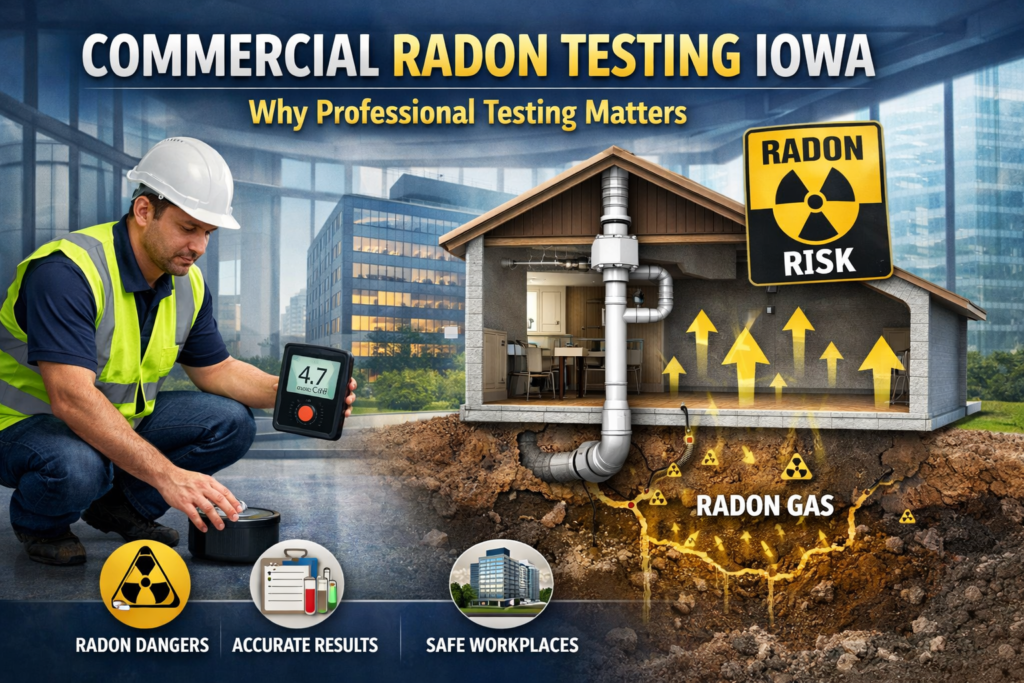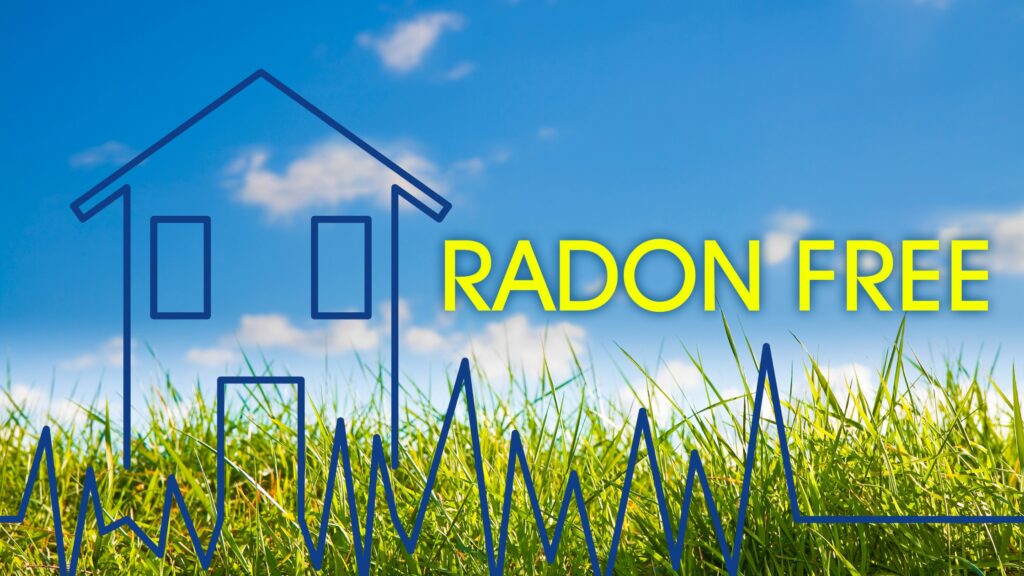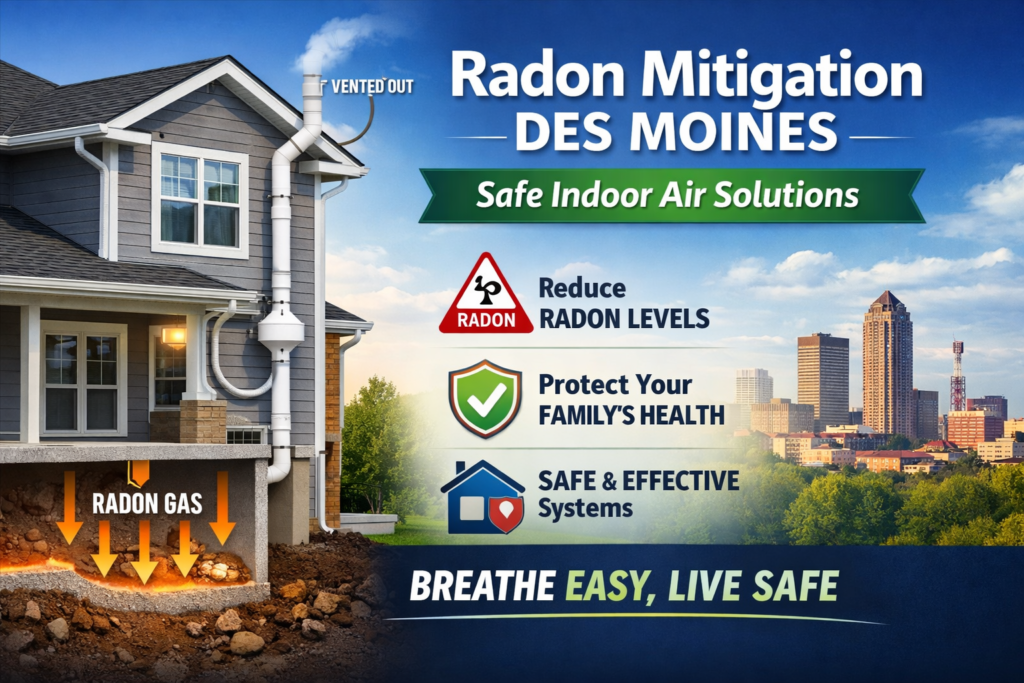The danger of radon has gained national attention, as more families recognize the severe radon health risk hidden inside homes, schools, and workplaces. Unlike other contaminants, radon has no smell, taste, or color—making it impossible to detect without proper testing. Over time, exposure to elevated radon levels increases the chance of lung cancer, making prevention strategies critical.
This article explains what radon is, why it matters, and how professional testing and mitigation services help you stay protected.

Why Is Radon Risky?
Radon is a naturally occurring radioactive gas formed when uranium in soil and rock breaks down. It seeps through foundation cracks, sump pumps, or crawl spaces, gradually collecting indoors. With radon being both invisible and scentless, the radon health risk often stays undetected until testing confirms elevated concentrations.
According to the EPA, radon exposure is the second leading cause of lung cancer in the United States. People who smoke face even higher risks when exposed to elevated radon levels. Families who ignore this danger compromise their long-term health and property safety. Learn more about Radon Mitigation System Installers.
How Radon Testing Works
The only way to confirm a radon health risk is through testing. Des Moines Radon provides certified testing services for homeowners, schools, and businesses. Their process involves short-term or long-term monitoring devices placed in critical areas of a property.
A) Short-term testing offers quick results, often within 48 hours.
B) Long-term testing measures seasonal fluctuations to provide a more accurate average.
Certified professionals explain the results clearly and recommend the best next steps. Testing is fast, affordable, and provides peace of mind. Moreover, professional testing surpasses over-the-counter kits by ensuring accuracy and reliability, which are essential when health and property safety are at stake. Acting early with expert testing can prevent costly repairs or rushed mitigation when selling a property.
Key Benefits of Radon Mitigation
When tests reveal elevated levels, mitigation systems are the next line of defense. Addressing a radon health risk with proper mitigation offers several benefits:
- Reduced Lung Cancer Risk – Lowering radon exposure dramatically cuts long-term health dangers.
- Safe Indoor Air – Clean, breathable air supports a better quality of life for families and employees.
- Property Value Protection – Buyers increasingly demand proof of radon testing and mitigation before purchasing a home.
- Quick Installation – Many mitigation systems can be designed and installed in a single day.
- Sustainable Safety – Long-lasting systems ensure continuous protection with minimal maintenance.

Advanced Mitigation Processes
Des Moines Radon specializes in customized systems designed for Iowa’s unique soil and construction patterns. Their approach includes:
- Active Soil Depressurization (ASD): Venting radon gas safely outdoors.
- Sealing Entry Points: Reducing cracks or openings where radon enters.
- Sump Pump Integration: Installing sealed covers with vent connections.
- Waterborne Radon Treatment: Using aeration or charcoal filters to treat well water.
These techniques target the source of the radon health risk and deliver long-lasting, reliable results.
Ongoing Monitoring and Maintenance
Effective radon control does not end with installation. Continuous vigilance is essential to ensure safe indoor levels. Des Moines Radon recommends:
- Follow-Up Testing: Confirming system performance after installation.
- Routine Maintenance: Checking fans, seals, and vent pipes.
- Scheduled Retesting: Every two years or after major renovations.
Additionally, professional inspections help homeowners identify system wear before problems arise. Because radon levels can shift due to soil conditions, weather changes, or home modifications, consistent monitoring guarantees ongoing safety. A small investment in regular checkups safeguards families from recurring radon health risks and supports healthier living environments for years to come.
Why Choose Des Moines Radon
Des Moines Radon stands out as a trusted partner for testing and mitigation. Their expertise comes from years of local experience and certified professionals who understand the community’s unique needs.
- Local Expertise: Serving Des Moines and surrounding metro areas, including Ankeny, Urbandale, Waukee, and Altoona.
- Certified Professionals: The owner is NEHA-certified and committed to exceeding industry standards.
- Transparent Services: From free mitigation estimates to thorough testing, customers receive honest guidance.
- Comprehensive Solutions: Covering air, water, and purification systems for complete protection.
Choosing the right partner means your family can trust that every Radon Health Risk is addressed with precision.
Conclusion
Radon may be silent, but the threat is severe. Testing, mitigation, and ongoing maintenance protect your health, your family, and your property value. By taking preventive steps today, you can eliminate hidden dangers and secure peace of mind. For expert support, visit Des Moines Radon

FAQs
1. What is the main radon health risk?
The primary danger is lung cancer, which develops after long-term exposure to elevated radon levels.
2. How often should I test for radon?
You should test every two years or after major renovations to ensure safe levels.
3. Can radon mitigation reduce risk?
Yes. Professional systems lower indoor radon to safe levels, protecting families long-term.
4. Is radon only a problem in old homes?
No. Any home, new or old, can face radon issues depending on soil and foundation conditions.
5. Does Des Moines Radon provide warranties?
Yes. They offer warranties and follow-up testing to ensure continued system performance.





